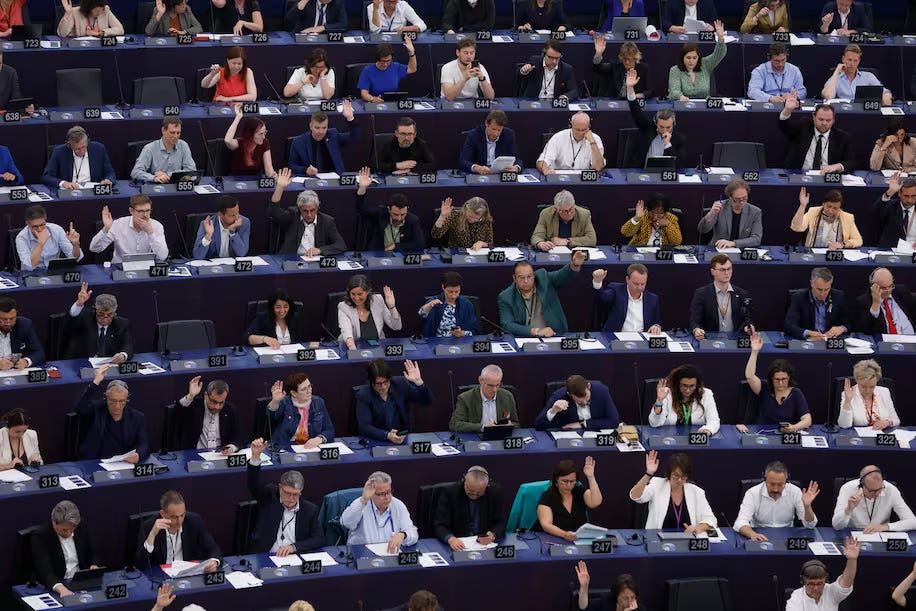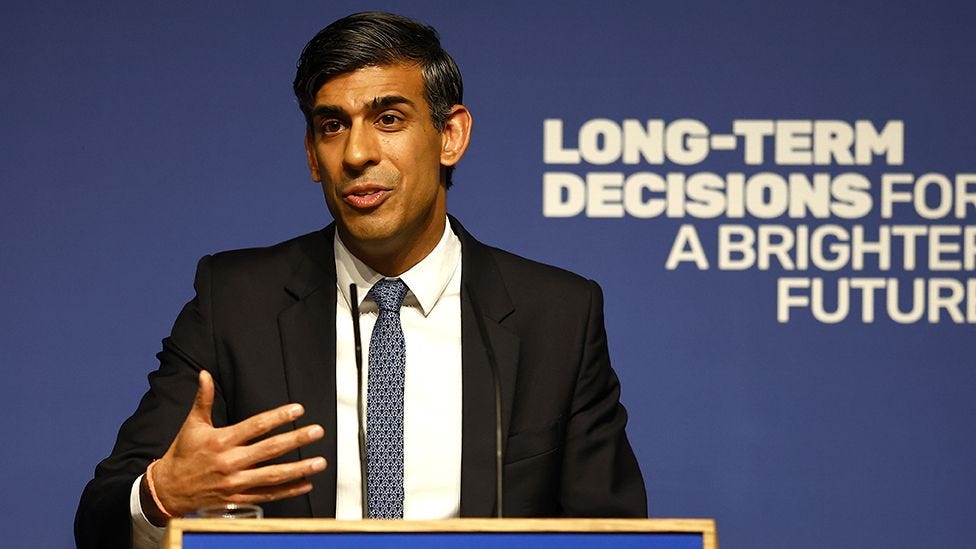EU Finalizes the AI Law Draft, Edging Out USA
Navigating the Evolving Landscape of AI Regulation: Global Efforts and Implications for India.

The EU's Pioneering AI Act
European Union officials on Friday (December 8) reached a crucial agreement on the draft formulation of the world's most comprehensive statute to regulate artificial intelligence, paving the way for its ratification by the European Parliament in June 2024. The EU's AI Act, shaped by rigorous negotiations, is designed to ensure the responsible development and application of AI. This groundbreaking legislation is poised to set a global benchmark, introducing robust measures to assess AI risks, enhance transparency, and impose penalties on tech companies for noncompliance. In an era where AI's potential benefits and risks are intensely debated, the EU's strategy strikes a thoughtful balance between fostering innovation and enforcing regulatory oversight, especially in high-risk sectors like autonomous vehicles and medical equipment.
Crafting a Benchmark for AI Regulation
The European Union's groundbreaking law is set to create a detailed framework for evaluating AI-related risks, promoting transparency in AI practices, and enforcing penalties on non-compliant tech enterprises. This initiative targets the regulation of AI in critical sectors such as autonomous driving and medical technology, mandating stringent data sharing and rigorous testing for companies seeking entry into the EU's substantial consumer market. The EU's legislative approach could serve as a catalyst for similar policies worldwide, striking a harmonious balance between encouraging technological progress and prioritizing public safety and ethical considerations in AI development.
The Debate Over AI Regulation and Innovation
The EU AI Act represents a significant step in regulating foundational language models like ChatGPT and other AI-driven technologies. The legislation faced contentious debates, particularly over exemptions for European security forces and open-source AI models. While it sets stringent guidelines for proprietary models deemed systemically risky, the Act allows certain flexibilities for open-source models, a move that could benefit European AI companies. However, this legislation also raises concerns about its potential impact on AI innovation. Critics argue that stringent regulations might impede technological advancement, giving an edge to regions like the U.S. and the UK, where AI research is more advanced and less regulated. The law underscores the delicate balance between fostering innovation and ensuring ethical AI deployment.
The Implications of AI Regulation for Big Tech and Global Markets
The EU's AI Act is part of a broader trend of the region's assertive stance on tech regulation. The Act's implications extend beyond AI, affecting overall tech industry practices, as seen with the General Data Protection Regulation and the recent Digital Services Act and Digital Markets Act. These regulations have significant consequences for global tech giants, with companies like Microsoft and Google adjusting their practices even beyond European borders. The recent investigation into Microsoft's investment in OpenAI by Britain's competition regulator highlights the growing vigilance over AI's influence in tech markets. As the EU's AI Act sets a potential global standard, it's a call to action for other regions, including the U.S., to contemplate their approach to AI legislation, balancing the need for innovation with ethical considerations and market fairness.
US Response and the Global AI Landscape
Contrasting the EU's proactive stance, the US has taken a different route. The Executive Order issued by the US President in late October 2023, although anchored in a voluntary agreement with top US tech giants, is binding on all federal departments and agencies. However, it lacks the force of law. This approach reflects a broader global trend seen in the 28-Nation agreement reached at the UK AI Safety Summit in Bletchley, signed in the first week of November, 2023. Signatories, including the UK, USA, India, China, and the EU, have endorsed a statement of intent rather than a binding legal framework, highlighting the varied approaches to AI governance.
The Microsoft-OpenAI Deal Under Scrutiny in UK
The scrutiny by the UK's Competition Regulator of the Microsoft-OpenAI deal underscores increasing worries about the consolidation of influence in the AI sector. This examination highlights the necessity for regulatory structures that are agile enough to match the swift pace of technological innovation and the intricate dynamics emerging between major tech companies and AI pioneers. Microsoft's acquisition of a board seat in the ostensibly "not-for-profit" OpenAI, albeit without voting rights, brings to the forefront potential conflicts of interest. This arrangement, previously labeled by us as an oxymoron, calls for a closer look into the intertwining interests between corporate giants and AI research entities.

Implications for India: Balancing Innovation and Ethics
For India, the evolving global landscape of AI regulation underscores the critical need for a bespoke legal framework. With AI advancing rapidly, India is poised to formulate legislation that harmoniously balances innovation and research with ethical standards and safety measures. The EU's AI legislation, emphasizing risk assessment, transparency, and consequences for noncompliance, offers a potential blueprint. Manish Tewari, Lok Sabha MP from Punjab, has been a vocal proponent of proactive measures in this realm. Nonetheless, considering India's distinct socio-economic fabric and technological milieu, it's imperative to develop a tailored strategy that resonates with India's national goals and international obligations, moving beyond the typical replication tactics often employed by its techno-bureaucrats.
Summing Up: The Road Ahead
The global landscape of AI regulation is rapidly evolving, with significant implications for countries like India. As the EU takes the lead with its comprehensive AI Act, and the US and other nations explore varied approaches, it becomes imperative for India to develop a framework that fosters innovation while ensuring ethical and safe use of AI. Balancing these objectives will be crucial for India's future in the global AI arena, ensuring that it remains competitive while upholding its values and societal norms.






